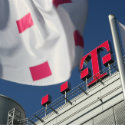
Deutsche Telekom's Qivicon-branded smart home platform does not yet appear to have found a telco partner besides Telekom Deutschland, the German operator's domestic division, despite assurances it would have announced a significant communications service provider relationship by the end of 2015.
Light Reading has also learned that Holger Knöpke -- who, as vice president of Deutsche Telekom AG (NYSE: DT)'s connected home business, was ultimately responsible for Qivicon -- is no longer involved with the platform.
"We currently cannot comment on an additional operator deal," said a spokesperson for Deutsche Telekom when asked for a progress report.
Thomas Rockmann, who previously worked in consumer product portfolio strategy for Telekom Deutschland, succeeded Knöpke as acting head of Qivicon late last year, according to the spokesperson, when Knöpke "was asked to take on new tasks within Deutsche Telekom Group."
Light Reading has been unable to confirm what Knöpke's new role entails. Both he and Rockmann are currently identified as "vice president connected home" for Deutsche Telekom on their LinkedIn pages.
Deutsche Telekom would not comment on whether the leadership change was in any way triggered by a lack of progress at the connected home business.
Nevertheless, various developments suggest that not all is well with the Qivicon project.
Launched in 2013, Qivicon is best described as an open-standards initiative aimed at spurring the development of a smart home ecosystem. Products developed by technology partners can be used in conjunction with a home hub incorporating ZigBee, Z-Wave and HomeMatic communications technologies.
Telekom Deutschland is offering its customers a range of smart home packages based on the Qivicon technology, but Deutsche Telekom has been trying to recruit other telecom service providers, as well as web services players, as Qivicon partners.
At last year's Mobile World Congress in March, Jean Kiessling, Deutsche Telekom's head of international business development for the connected home, told Light Reading that a company in the Netherlands (not T-Mobile) would begin providing Qivicon-based services by June and that an offering would become available in the UK before the end of the year. (See DT to Bring Smart Home Into Netherlands, UK.)
"A major telco in Europe will launch on Qivicon," said Knöpke, when asked about partnerships outside Germany in September. "There will be an announcement very soon and definitely this year."
So far, however, there have been no announcements about such deals in the Netherlands and the UK or with a major European telco.
Want to know more about the Internet of Things? Check out our dedicated IoT content channel here on Light Reading.
In the meantime, the UK's Telefónica UK Ltd. , trading under the O2 brand, has this week revealed that it will begin offering smart home services based on AT&T Inc. (NYSE: T)'s Digital Life platform this summer.
Although O2 owner Telefónica had engaged with AT&T about trialing Digital Life as far back as September 2014, this looks like something of a blow to Qivicon.
Deutsche Telekom's spokesperson declined to comment on O2's selection of Digital Life, but in September Knöpke had been rather dismissive of US-based competition, arguing that European companies were looking for partner providers "in their time zone."
"The requirements at a broad level are the same in terms of monitoring, efficiency and security, but if you look below, it's sometimes different with regulations about data security and privacy," he said at the time. "You need to comply with all those requirements on a European level."
O2 says it considered using alternatives to Digital Life, without disclosing their identities, but decided the AT&T technology had a number of advantages. "It is a proven product with an established device ecosystem, and the roadmap continues to evolve," says an O2 spokesperson. "AT&T has worked with O2 to develop additional functionality to ensure Digital Life has what we need to be successful in the European market."
Indeed, the deal with O2 has already given AT&T some ammunition it can use against those arguing the case for European platform partners. "O2's interest after our trial with Telefónica shows that Digital Life's platform is a great fit for European markets such as the UK," said Kevin Peterson, the president of AT&T Digital Life, in a statement.
Regardless of developments within the UK market, Qivicon desperately needs to broaden its ecosystem of technology partners if it is to flourish in the long term, but the last time Deutsche Telekom announced details of new partners was in September, when it claimed to have around 40 in total. That list includes major players such as Huawei Technologies Co. Ltd. , Royal Philips Electronics N.V. (NYSE: PHG; Amsterdam: PHI) and Samsung Electronics Co. Ltd. (Korea: SEC).
Even so, Kiessling has conceded that Qivicon will struggle to compete as a smart home "ecosystem" against technology giants such as Google (Nasdaq: GOOG) and Apple Inc. (Nasdaq: AAPL), which are pursuing their own initiatives in this market.
In September, Knöpke said there would be room for only three to five smart home platforms globally in the next five to seven years.
— Iain Morris, 

 , News Editor, Light Reading
, News Editor, Light Reading
Read more about:
EuropeAbout the Author(s)
You May Also Like




_International_Software_Products.jpeg?width=300&auto=webp&quality=80&disable=upscale)







